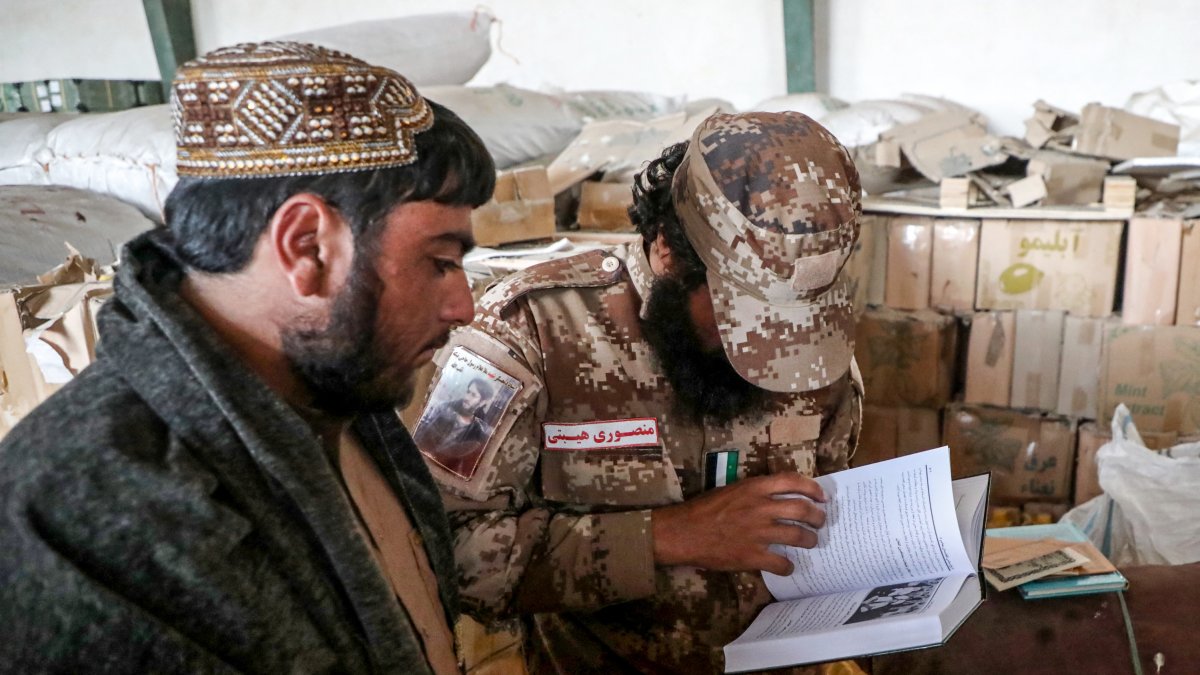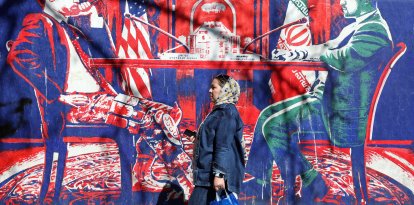Afghanistan: Taliban bans "non-Islamic" books
The radical Islamist government is intensifying its repressive policies in the realm of literature. One publisher stated that fear is widespread in the country, making it increasingly difficult to operate due to censorship.

Taliban officials evaluate imported books in Herat, Afghanistan.
The Taliban government is working to remove books it deems "un-Islamic" and anti-government from circulation in Afghanistan, according to a report by the AFP agency.
The campaign, which began shortly after the radical Islamist Taliban regime regained power following the chaotic U.S. withdrawal in 2021, is being led by the Afghan Ministry of Information and Culture.
In October, the ministry announced in a statement that it had identified 400 books "that conflict with Islamic and Afghan values, most of which had been collected from markets." It added that copies of the Qur'an and other Islamic texts had been distributed to replace them.
The seizures took place primarily during the Taliban's first year in power and in recent months, according to a publisher in Kabul, Afghanistan's capital, and a government official.
Speaking to AFP, the publisher said there is a lot of fear in the country and it has become very difficult to work because of censorship.
Although the previous government restricted some texts, the publisher clarified that people were not afraid and could express their opinions freely.
Some books banned by the Taliban
Some of the banned books, listed in a document obtained by AFP, include Jesus, the Son of Man by Lebanese-American writer Khalil Gibran, which the regime deems to contain 'blasphemous expressions'; The Twilight of the Steppe Gods by Albanian author Ismaíl Kadaré; and Afghanistan and the Region: A West Asian Perspective by Mirwais Balkhi, the former education minister. This book was banned because the Taliban considers it to spread "negative propaganda."
Mohamed Sediq Khademi, an official with the Ministry for Propagation of Virtue and Prevention of Vice, told AFP that authorities have not banned books from a particular country or person, but those that "are contrary to religion, Sharia (Islamic law) or the government, or if they have pictures of living beings."
Khademi added that importers were warned about books to avoid.

World
'A slow death': The traumatic lives of women under Taliban oppression in Afghanistan
Leandro Fleischer
The Taliban banned the female voice from being heard in public and the publication of images of living beings, among other restrictions.
Last August, the Taliban issued a series of laws in order to further curtail the freedoms of its citizens, including a ban on the sound of women's voices in public, as it considers them to be intimate, so they are not allowed to be heard singing, reading or talking.
Among the new rules, which were approved by Supreme Leader Hibatullah Akhundzada, women must cover their bodies in public spaces, mainly their faces, to avoid tempting themselves and others. They must also cover themselves in front of non-Muslim men and women so as not to corrupt themselves.
In addition, laws issued by the Islamic fundamentalist regime state that women must wear clothing that is neither tight-fitting nor short.
Last October, the Taliban government began implementing a new law that prohibits publishing images of living beings, both animals and humans, in the media.
Following the announcement by the Ministry for Propagation of Virtue and Prevention of Vice, the regime's media outlets have stopped broadcasting footage of living beings in some provinces of the country.

























